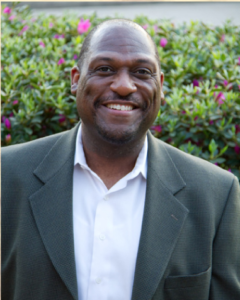PRAIRIE VIEW, Texas (June 10, 2020) – June is African American Music Appreciation Month, and given the bizarre experiences created by the global pandemic and the ongoing epidemic of murder at the hands of rogue law enforcement officers, now is the perfect time to dig into and celebrate the richness of the African American experience through our music.
To be clear, African American music is American music. The struggles, the triumphs, the disappointments, the exasperations, the prayers, the blessings, the unadulterated joy – they are all present. These human experiences can be found in spirituals, field hollers, ragtime, the blues, jazz, boogie-woogie, Motown, Stax, Civil Rights protest songs, gospel, soul, funk, neo-soul, hip hop, rap, art songs, symphonies, choral anthems, tone poems; in short, the full range of humanity and creativity. This music has its roots in the Big Beat (James Brown used to shout ‘Heavy on the 1’), the over-arching African concept of a unifying pulse that organizes everything, and the surefire complexity of syncopation that divides, subdivides and subdivides that big pulse again.
African American music also absorbs and interprets nearly every other culture it touches until that touch becomes a caress and an embrace. It comes with the five-note (pentatonic) melodies of African song, of Arabic prayers, of Celtic ballads, of Native American chants. It has been sung by the rumbling bass of Simon Estes and Larry Graham, the melodious baritones William Warfield and Billy Eckstine, the scorching tenors Eddie Kendricks and Lawrence Brownlee, the chocolate-rich contraltos of Marion Anderson, Sarah Vaughan and Mahalia Jackson, shouters like Bessie Smith and Chaka Khan, the brilliant sopranos Leontyne Price and Minnie Ripperton. They all gave life to melody and lyrics that take the listener deep into the Black community. About that singing, improvisation is important and can be abused (!). The purpose of the riffs, licks, growls and shouts is to illuminate the text and the emotion (listen to Gladys Knight add a little “Whoo!” near the end ‘Neither One of Us’). That community is ultimately life-affirming, giving wings to dreams that always have a home to which one can return.
Lists are nice; in the preceding paragraph, I listed a plethora of genres, recording companies, and artists. But, how can we use this information? How can the act of listening to music, old and new, soothe a troubled spirit, give hope to despair, make you want to lift your shoulders, and lift your head? The secret is in listening. Listening is a conscious act; hearing is involuntary. There is a connective thread throughout African American music that goes back 400+ years, which places it firmly in the African diaspora of creativity but also reaches across many cultures. To listen actively means that your mind is engaged with what you are encountering sonically. Why do I like this groove? Why do those lyrics move me so? Why can I listen to this selection over and over again and never get tired of it?
When we listen with intention, we bring our whole being into the act. This, I think, is one of the “secrets” of African American culture. You cannot disregard that level of intensity; you need to pay attention. You need to wrestle with its’ themes. You need to take it with you.
As we traverse the month of June, I encourage you to take a moment each day to listen to a genre or artist you have never listened to before and then listen to something familiar. See if there is a connection that you weren’t expecting. The lists above are a great place to start, but for those of you who want a bit of a cheat sheet, I’ll leave you with a few recordings that can get you going (You can find all of these on YouTube.). Try one a day, or, if you’re feeling ambitious, listen in one sitting:
Day 1: Son House – “John the Revelator”
Day 2: Ella Fitzgerald – “Sweet Georgia Brown”
Day 3: Ray Charles – “I Got a Woman”
Day 4: BB King – “Paying the Cost to Be the Boss”
Day 5: Aretha Franklin – “Muddy Water”
Day 6: Duke Ellington – “Giggling Rapids”
Day 7: Margaret Bonds – “Minstrel Man”
Day 8: Leontyne Price – “He’s Got the Whole World in His Hands”
Day 9: James Brown – “Get on the Good Foot”
Day 10: Chaka Khan and Rufus – “Tell Me Something Good”
Day 11: Stevie Wonder – “Sir Duke”
Day 12: Bill Withers – “Grandma’s Hands”
Day 13: Blackstreet – “No Diggity”
Day 14: Soul II Soul – “Back to Life”
Day 15: Digital Underground – “The Humpty Dance”
Day 16: Missy Elliott – “Get Ur Freak On”
Day 17: TLC – “No Scrubs”
Day 18: Joe Sample & Lalah Hathaway – “One Day I’ll Fly Away”
Day 19: India.Arie ft. Akon – “I Am Not My Hair”
Day 20: Byron Cage – “The Presence of the Lord is Here”
Day 21: Kirk Franklin, Kelly Price, Fantasia, Tyrese & More – “I Smile”
Again, this is just a teaser, a start. Use the rest of the month to explore other performers and genres. Drop me a note with your thoughts – I’d love to hear your opinions. You can reach me at JLCornelius@pvamu.edu. Enjoy the exploration!
John L. Cornelius II, Ph.D., is a professor of music in Prairie View A&M University’s Marvin D. and June Samuel Brailsford College of Arts and Sciences.

